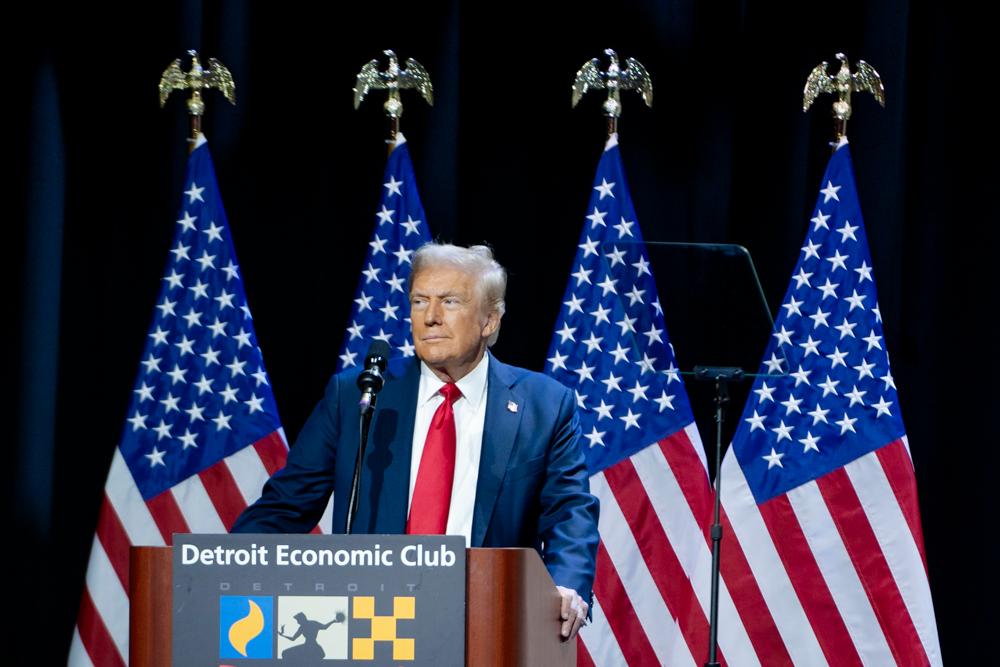Former U.S. President Donald Trump has announced plans to renegotiate the United States-Mexico-Canada free trade agreement (USMCA) if he wins the U.S. presidential election in November.
“Upon taking office, I will formally notify Mexico and Canada of my intention to invoke the six-year renegotiation provisions of the USMCA that I put in,” Trump announced in a speech at the Detroit Economic Club on Oct. 10.





